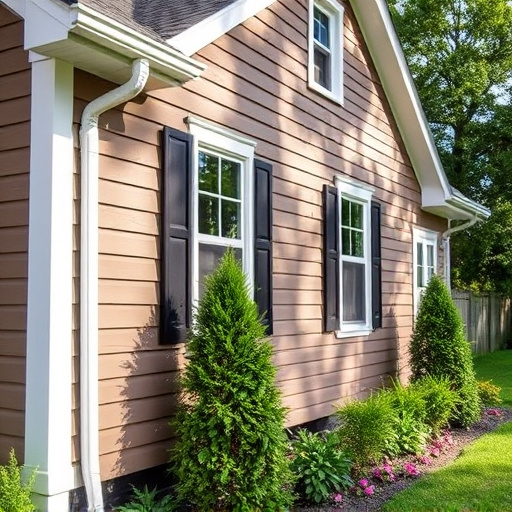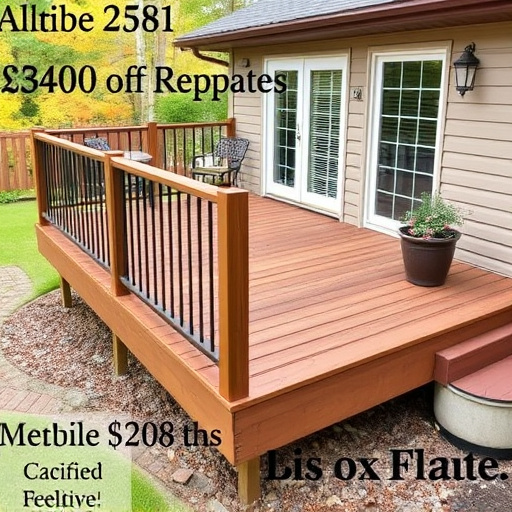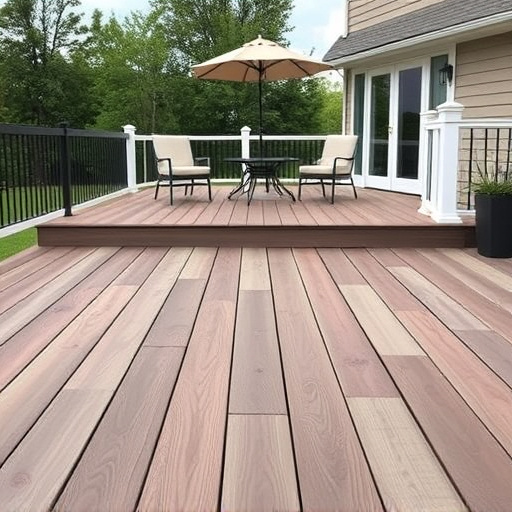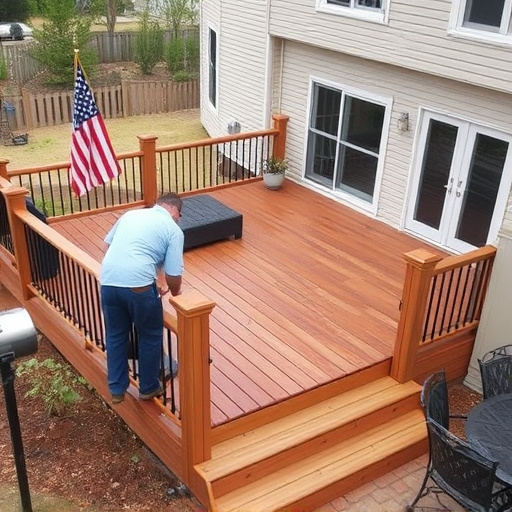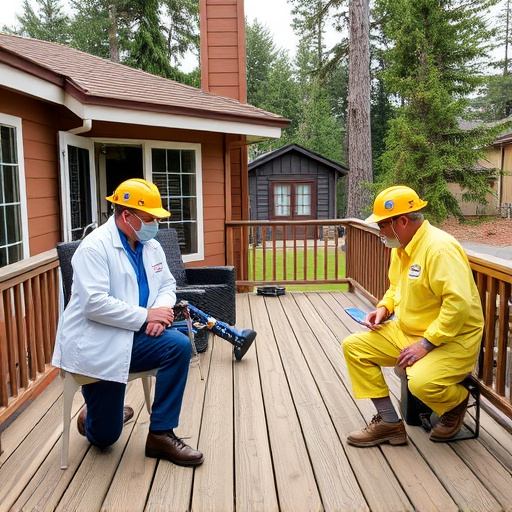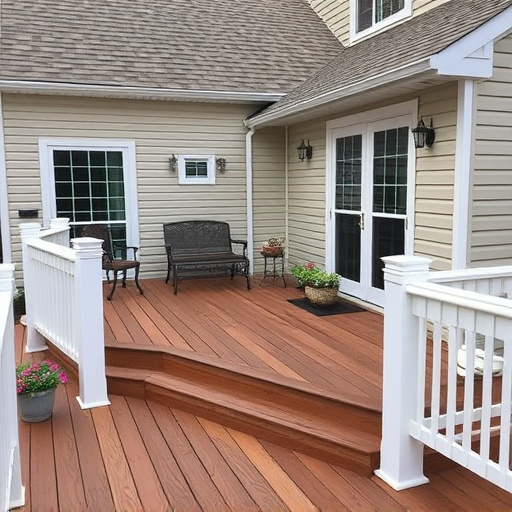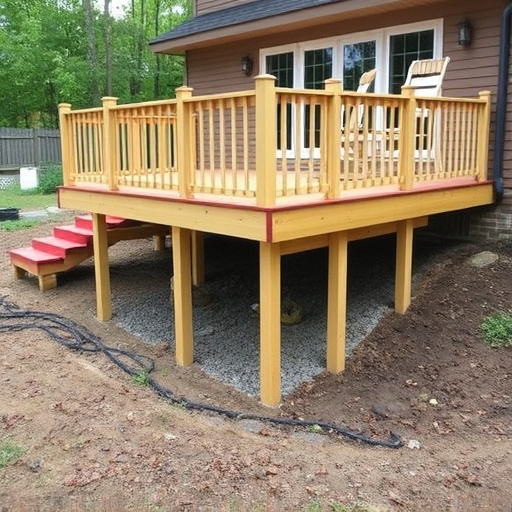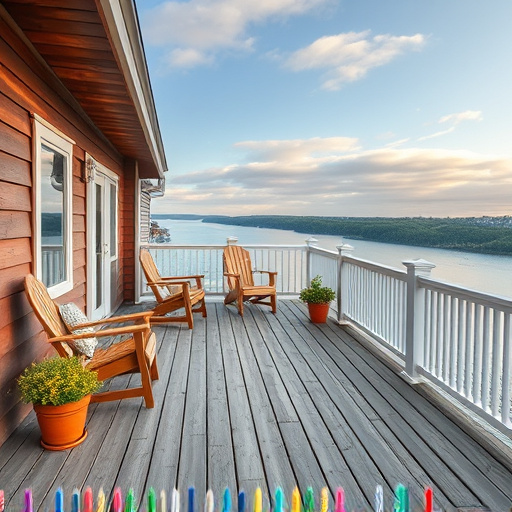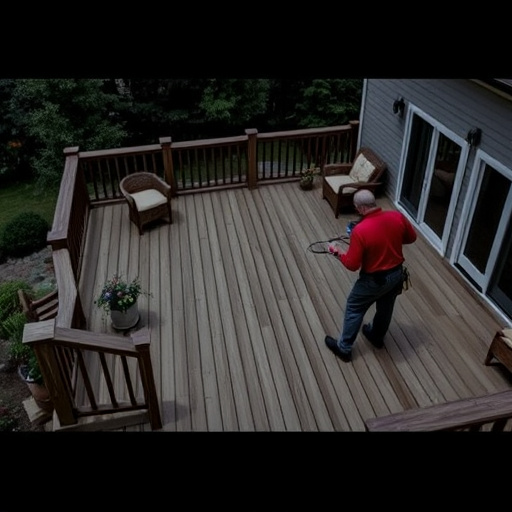Custom deck projects can prioritize environmental sustainability through eco-friendly material choices like recycled composites, certified woods, and locally sourced options, reducing carbon footprint without compromising aesthetics or functionality. Integrating energy-efficient roofing and water-efficient fixtures further enhances the deck's green impact, making it beautiful and responsible. Insulated substructures and reflective roofing minimize heat transfer, lowering AC needs.
Looking to build a custom deck that’s both stunning and sustainable? Eco-friendly options are now more accessible than ever, offering both style and environmental responsibility. This guide explores sustainable materials, innovative design strategies, and efficient installation practices for your dream green deck. Discover how to create a beautiful outdoor space that harmonizes with nature, from selecting recycled lumber to implementing energy-saving features, making your custom deck a model of eco-conscious living.
- Understanding Eco-Friendly Deck Materials
- Design Strategies for Sustainable Decks
- Installation Practices and Energy Efficiency
Understanding Eco-Friendly Deck Materials
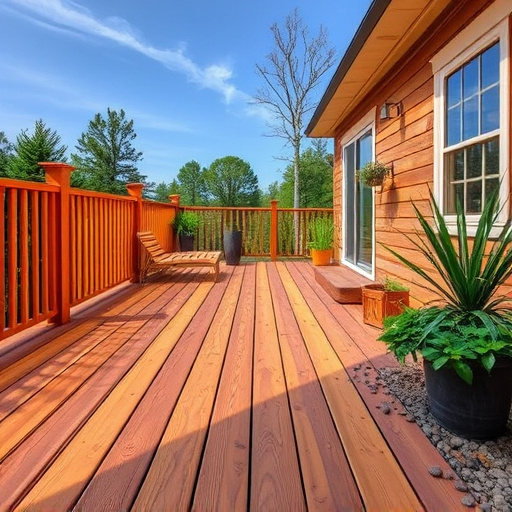
When planning a custom deck project, understanding eco-friendly materials is key to making sustainable choices that benefit both your outdoor space and the environment. These materials offer an array of options for homeowners looking to reduce their carbon footprint without compromising on aesthetics or functionality. From recycled plastic composites to natural woods certified by sustainable management programs, there’s a vast selection available.
Eco-conscious deck builders can also consider innovative solutions like using reclaimed wood, which gives new life to discarded materials, and incorporating local and organic options that minimize transportation emissions. Additionally, integrating these materials with complementary roofing solutions, such as energy-efficient commercial roofing or traditional siding and gutters, further enhances the project’s eco-friendliness.
Design Strategies for Sustainable Decks
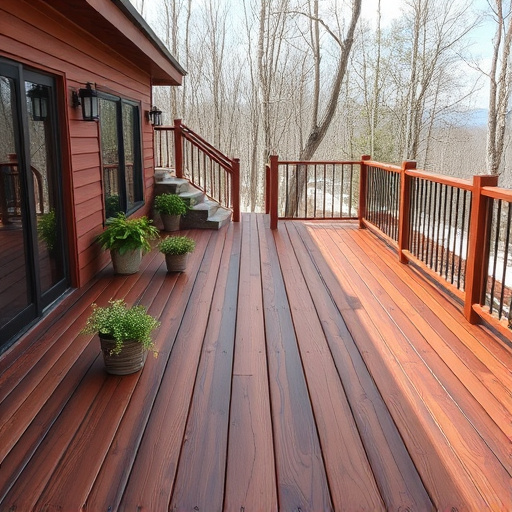
When designing a custom deck, incorporating eco-friendly strategies can significantly reduce its environmental impact. One effective approach is to prioritize natural materials that are locally sourced and sustainably harvested. Opting for wood certified by reputable sustainability organizations ensures responsible forestry practices, preserving ecosystems for future generations. Additionally, selecting recycled or reclaimed building components, such as decking boards made from plastic waste or old wooden structures repurposed as deck rails, diverts materials from landfills and minimizes energy consumption associated with manufacturing.
Another design strategy involves efficient space planning to minimize material use and maximize functionality. Well-designed decks can serve multiple purposes, offering outdoor living spaces for entertaining, relaxation, and recreation without excessive construction. Incorporating renewable energy solutions like solar-powered lighting or a small-scale photovoltaic system not only reduces the deck’s carbon footprint but also provides long-term savings on energy bills. Moreover, integrating water-efficient fixtures, such as rainwater harvesting systems or drip irrigation for native plants, contributes to overall sustainability and ensures responsible water management practices in home exterior services.
Installation Practices and Energy Efficiency
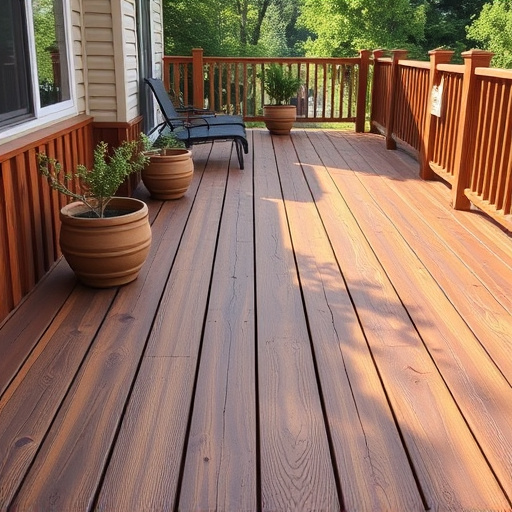
When constructing a custom deck, energy efficiency plays a vital role in eco-friendly practices. Proper installation techniques can significantly impact a deck’s thermal performance. Using insulated substructures and energy-efficient materials like recycled composite decking reduces heat transfer, keeping your home cooler during summer months. This, in turn, lowers the need for air conditioning, thereby saving on energy costs.
Additionally, incorporating roofing solutions and siding services with an emphasis on insulation and sustainable materials contributes to overall energy efficiency. A roof consulting service can help select high-performance roofing materials that reflect sunlight, reducing the deck’s heat absorption. Combined with well-insulated siding services, these measures create a comfortable outdoor living space while minimizing the environmental impact of your custom deck construction.
When constructing a custom deck, prioritizing eco-friendliness is not just beneficial for the environment but also adds value to your property. By understanding eco-friendly materials, employing sustainable design strategies, and adopting energy-efficient installation practices, you can create a stunning outdoor living space that harmonizes with nature. These environmentally conscious choices ensure a beautiful, durable deck that serves as a relaxing retreat while minimizing your carbon footprint.






